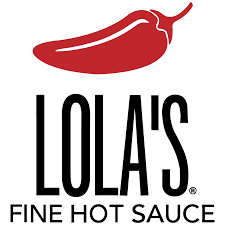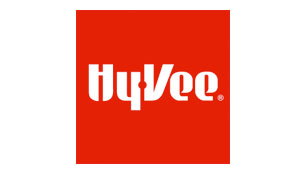Occupy Iowa: Is that any way to act?
A hidden message in a movement. If you want to make a difference, you stand up and speak out, businessman says

Terry Rich hasn’t met a crowd he didn’t like.
The Iowa Lottery chief is quick to admit that the crowd gathered at Stewart Square Park in Des Moines under the Occupy movement umbrella has grabbed his attention.
“I’d kind of like to go down and be with them,” he said.
During his college days in the early 1970s at Iowa State University, Rich was pretty much against anyone with a title. He participated in sit-ins. If he perceived an injustice, he was quick to join a protest.
“As I look at Occupy Iowa or Occupy anywhere, I still have that in my gut,” he said.
That twist might take the Occupy movement a little beyond the bundled frustration conveyed in its messages about economic injustice, but it comes from the heart of an old-school activist turned highly successful businessman.
He is not, on the other hand, about to apologize for his successes in the private sector, his position as the CEO of a very visible and sometimes controversial state agency, or the wealth he has accumulated in the business world.
Rich isn’t shy about pointing out that he has made all of the money he wants or needs.
When the Business Record contacted local business leaders recently to get their take on the Occupy movement, Rich said he saw the movement through the experiences of an entrepreneur and a protestor.
A good entrepreneur should fit the profile of a protestor, he said. Both are risk takers.
Taking a risk accounts for Rich’s successes and occasional failures. Failures, by the way, that are on display in his Iowa Lottery office in the form of framed rejection letters. There aren’t many, but they do keep him a little humble.
That from a man who suggests, with a laugh, that you can call him the “Rich(est) guy in town.” He also has gone by the “zoo dude” moniker from his five years leading the Blank Park Zoo out of financial doldrums, and he has encouraged a show biz pizazz in lottery advertising.
When he graduated from ISU in 1974, Rich figured he would take the business world by storm. He fired off a letter to Warner-Lambert Co. praising a razor, figuring it would land him a marketing job. It was a nice try, but the letter he wrote was about a competitor’s product. That was rejection No. 1.
Instead, he wound up at Heritage Communications Inc., the homegrown cable and advertising company that generated considerable wealth for Rich and others when it was sold for more than $1.5 billion in the late 1980s.
Jim Cownie, who co-founded Heritage, provided Rich with key business advice that he has carried throughout his career. The advice was to make sure that every deal was legal, fair and ethical.
Using the cash settlement from the Heritage sale, Rich started his own company, Rich Heritage Inc., a national television programming and production company whose clients included Time Warner, HBO, Cox Communications, AT&T, Starz and USA Networks.
He also was a founding member of Emerging Growth Group, a high-tech venture capital group and business incubator.
After leaving Heritage and before launching more businesses, Rich considered returning to the Greene County farm where he was raised to help his father.
Dad said “no.” Rich, who earned enough money on the farm to pay his way through college, could make a better living following his own talents and work ethic.
“My dad provided me with all of the tools – the cattle, the tractor, the baler – to earn my way through college,” Rich said.
His dad also cheered his son’s successes.
Some of those successes also made Rich something of a celebrity. He brought the national spotlight to Cooper, Iowa, during an appearance on “The Tonight Show Starring Johnny Carson.” He has been a Greater Des Moines radio personality.
At the end of the day, he is an idea guy who surrounds himself with detail people – necessary to keep some of his ideas in check, he admits with some reluctance.
It’s the willingness to put ideas on a public stage that attracts Rich to Occupy Iowa.
“It’s ironic now that they are me,” he said. “I’m a government official, and being on this side of the equation and having been successful with four or five businesses and making all of the moneys and doing better than my dad did and his generation did gives me a different kind of perspective.”
That perspective leads him to the conclusion that Iowa would be better off if more people were willing to take the risk to act on their convictions.
He notes that the 1960s protest movement originated in San Francisco, which he called “the most creative place in the world.” The area also generated some of the wealthiest people in the world after they exploited the potential of the personal computer. Find the common thread: challenge authority, find success, Rich said.
“We all want to challenge the establishment,” Rich said.
“We want to do something new, something different, because it is not working now. If we could funnel that energy and that burning desire to do something into something that could help people in their quest to make their lives better, that would be a pretty cool quest. “You challenge the notion that that’s the way things are so that’s the way things must be. A lot of people have the next million-dollar idea; they just don’t take the risk to develop the next great idea.”
Rich said he is sometimes confused by the many messages coming from the Occupy movement. He is aware that he might be a target of their unease. He doesn’t mind.
“I don’t see many people who are in authority or who have made their money who haven’t had the same feelings that (the Occupy movement expresses) in being upset with authority and the way things are going,” he said. “The way to do that is to speak up and change. The way to make money is to stand up and act.”
Checking out Occupy Iowa
Tim Urban has managed to build a successful career through real estate development. He is not reluctant to question the way things are. It isn’t surprising that he checked out Occupy Iowa in person.
There are a variety of people with different agendas, he said. Though the movement’s message can seem a little blurry at times, he was sympathetic enough to provide camping gear to the protesters.
“The one thing that they all agree on is that we have too great a disparity between the wealthy and those at the other end of the spectrum,” Urban said.
He does not believe that the protesters, especially in Iowa, hold a grudge against wealthy people. Instead, he believes the frustration is directed toward politicians and the big national banks that engaged in real or imagined shenanigans that triggered the financial crisis, then benefited from government programs.
Urban expressed the same frustration.
“No one’s in jail yet; no one’s been indicted,’ he said. “It boggles the mind.”
And he does believe the Occupy movement will have an impact, much the same way that the Tea Party has had an effect on political debate.
“I think these folks are very frustrated,” Urban said. “The rhetoric is completely bipartisan: ‘We’re going to go after all of them.’”










